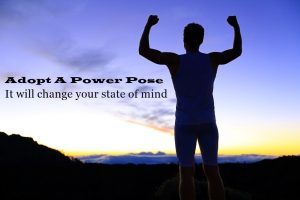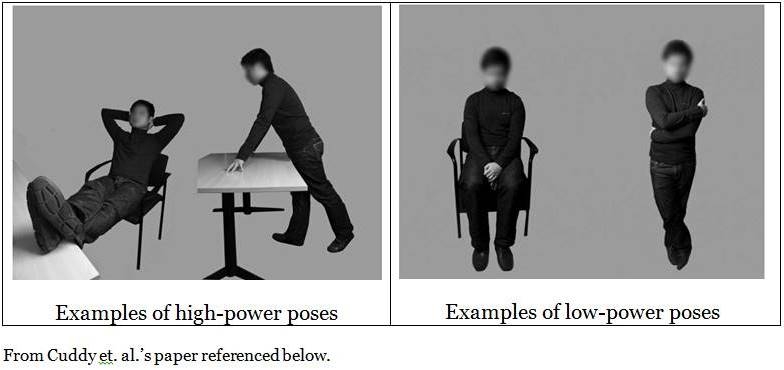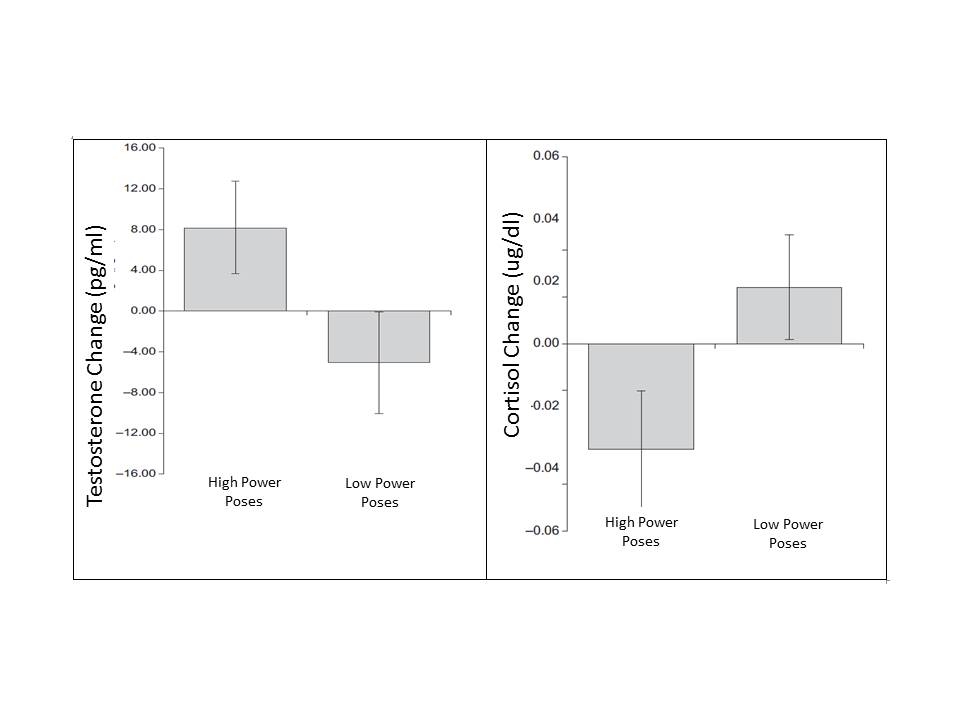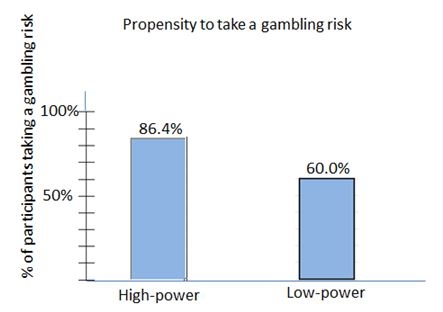19 Jun 2015 Take A Power Pose – It can change how your life unfolds.

Introduction
We have long known that the state of our brain affects the state of our body, but is the reverse also true? Can the state of our body affect the state of our brain?
In a recent study Professor Amy Cuddy of Harvard Business School and her colleagues, Dana Carney and Andy Jap discovered that even a 2-minute change in our body posture can affect the level of the hormone cortisol and testosterone in our brain, thereby boosting our feeling of confidence and power.
The researchers also discovered that a boost in our own feeling of confidence and power affects how others perceive us. The non-verbal cues we broadcast when we feel powerful can have a significant effect on the outcome of life-critical situations such as a job interview or a political election campaign.
The Science
In this study, the researchers asked the first group of participants to take a high-power pose such as in the images below, for two minutes. The second group was asked to take a low-power pose for two minutes. The researchers measured the
level of the “stress hormone” – cortisol and the “dominance hormone” – testosterone in the saliva of the participants before and after the two-minute pose.
The hormone cortisol gets the body into a defensive condition ready to either fight or flee. Our blood pressure increases, our palms become sweaty, some of our muscles tighten, our lungs get ready to accept more oxygen, and our digestive system reduces or stops its digestion activities.
Conversely, an increase in the level of testosterone in our blood (and saliva), makes us feel more confident, dominant, and even aggressive. It also helps to spark competitiveness and boost self-esteem. Lower testosterone may result in a loss of confidence and lack of motivation. It can also lower the ability to concentrate or cause feelings of sadness.

The results of the first phase of the study are shown in the graphs below. The group that took the high-power pose experienced an elevated level of the “power hormone” testosterone and a reduction in the level of the “stress hormone” cortisol. The group that took the low-power pose experienced an increase in the level of cortisol and a reduction in the level of testosterone.

Phase 2 of the experiment involved determining the effect of the high and low-power poses on the propensity of the participants to gamble. The hypothesis of the researchers was that high-powered people will tend to feel more confident about their ability to influence the outcome of their actions, including gambling, and therefore will gamble more. Conversely, low-powered people will feel less confident and will therefore tend to gamble less. As shown below the results of the experiment confirmed the researchers’ hypothesis.

In another phase of the experiment, the researchers put the participants in a simulated high-stress job interview and asked each one of them to make the same presentation regarding their experience and qualification. The simulated job interviews were recorded on video and presented to a selection panel, who did not know which participants took the high-power versus the low-power poses prior to the interview.
Without exception, the panel selected the candidates who took the high-power poses over the candidates who took the low-power poses.
Our Recommendation
Before any important life event such as a job interview, an examination, an important meeting or presentation take a few minutes to sit or stand in a high-power pose. It can make all the difference between success and failure.
References
Carney, D. R., Cuddy, A. J.C., Yap, A. J., Power Posing: Brief Nonverbal
Displays Affect Neuroendocrine Levels and Risk Tolerance, Journal of Psychological Science, April 2010
Amy Cuddy’s TED Talk – Click here to view



